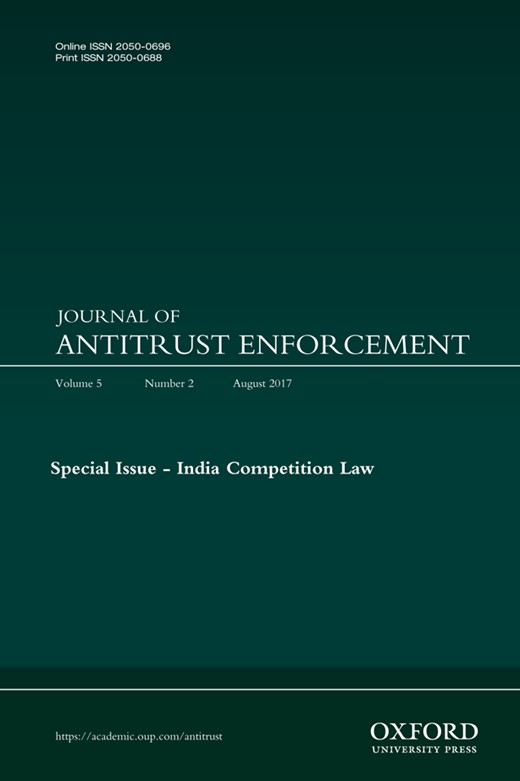-
Views
-
Cite
Cite
Aditya Bhattacharjea, Oindrila De, Anti-cartel enforcement in India, Journal of Antitrust Enforcement, Volume 5, Issue 2, August 2017, Pages 166–196, https://doi.org/10.1093/jaenfo/jnx001
Close - Share Icon Share
ABSTRACT
We review the legal framework and case law pertaining to anti-cartel enforcement in India. We begin with a very brief review of enforcement under the Monopolies and Restrictive Trade Practices Act, which was in force from 1969 to 2009. We then discuss in detail the anti-cartel clauses of its successor, the Competition Act. This serves as a prelude to our critical review of cases decided under this statute up to the end of 2016, with particular emphasis on those resulting in important precedents or major penalties. Most of these decisions have, however, been remanded, reversed, or modified on appeal. We discuss the major reasons for these setbacks, including violations of the principle of natural justice, arbitrary levels of fines, and inadequate evidence. The emerging trend in jurisprudence is that evidence of anti-competitive effects will be necessary to establish a contravention, even in cases involving hard-core cartels. We find that the antitrust regime has paid insufficient attention to issues of deterrent penalties, price transparency, and the collusion-facilitating role of vertical restrictions and government policies. We also note the disuse of some of the progressive features of the Competition Act, such as provisions for a leniency programme, dawn raids, and extra-territorial application.



